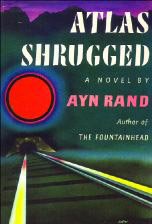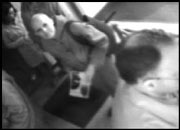JACK STRAW WRITERS
MATT BRIGGS, GREGORY HISCHAK, KATHLEEN FLENNIKEN, MARY LOU SANELLI, CLAUDIA MAURO, ARNE PHIL
Starbucks Literary Stage in the Alki Room
4:45&-6:15 p.m. Fri., Aug. 30
Matt Briggs’ wife has a reputation. Sometimes when they go to parties together, she gets plastered—so plastered, in fact, that she’s known to blurt out in crowded rooms, “Let’s have a three-way!” She doesn’t mean it (it’s code for “I’ve had too much to drink”), and you get the sense from Matt that he thinks it’s cute, that it’s long been one of the standing jokes of their marriage, that they and their friends laugh over it.
Then, Briggs doesn’t really know why, he wrote a story about it.
“My wife hates it,” Briggs says about “The Wedding Party”—”an actual transcription of a wedding party we went to” in which the character based on his wife, after offering to have group sex with men she doesn’t know, is propositioned by a drunk man who tells her, “I want to lick your tits.” She keeps saying, “I love my husband,” and the drunk man keeps saying, “I want to lick your tits.” Later the wife says, “I admit I was flattered. I flirted with him. I’m sorry. Please forgive me? I’m sorry. It’s my fault. I feel so ugly. I’m fat. And I’m flattered that someone wanted to lick my tits.”
Misplaced Alice, soon to be released from StringTown Press, is a small orange book of smart, mostly strange stories. (None of the stories except “The Wedding Party” is based on actual events. “A story itself is a completely artificial thing,” Briggs says in defiance of what he describes as the “pressure to make literary fiction seem natural, even though the whole enterprise is fake.”) The first one, “Rita,” is about a couple who buys a monkey at a mall—”not a chimpanzee, but a little monkey that would fit in a large birdcage”—and then goes out of town to attend a funeral. During their absence, the man they hire to take care of the monkey gets hit by a truck. When they return from the funeral, they find the monkey with its “arms propped through the bars of the cage . . . starved to death”; by the story’s end, for some reason only tangentially related to the rest of this, they get evicted. All of this happens in the space of less than four pages.
Briggs knows how to get through a story. His manner is to write sentences that are short and intense and seem to get ahead of themselves—producing the druggy, somewhat dizzying effect of contrived propulsion as he charges right through the kind of subject matter other writers would deliberate over dolorously. He doesn’t pause for a lingering description of anything, and he doesn’t call attention to his presence as the writer; nor does he fuck around with what other writers like to call development. It’s as if he doesn’t have the patience for trajectory—for the process of positioning things, setting them up, and seeing them through. His treatment of his characters is clean and brutal, and if his stories end sharply (sometimes even uncomfortably), they’re all the better for it: A good ending in fiction—like in life—is sudden.








